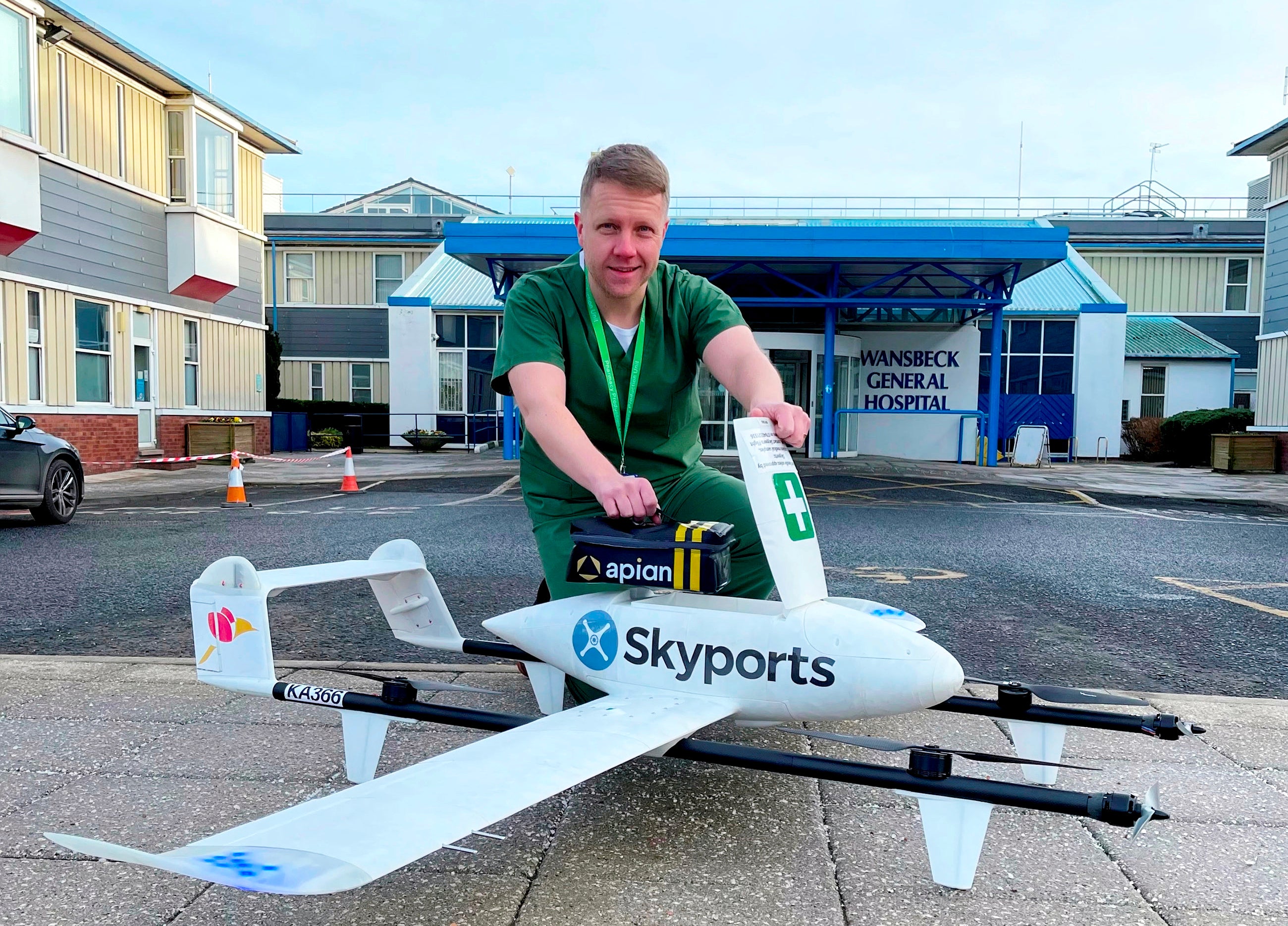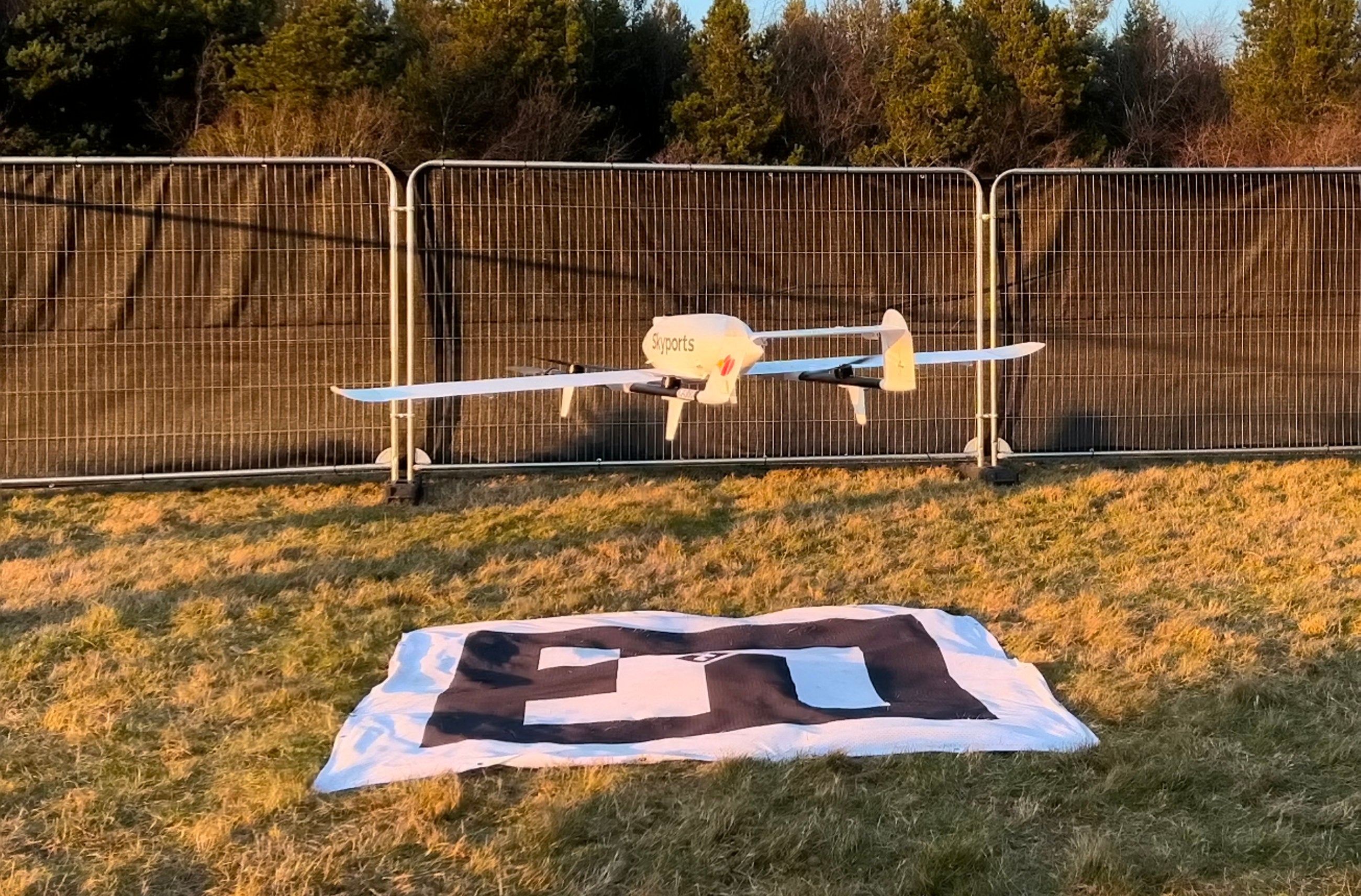The 70mph drones taking hospital medical supplies to the skies
Drones will transport clinical supplies, prescriptions, blood packs and mail
Your support helps us to tell the story
From reproductive rights to climate change to Big Tech, The Independent is on the ground when the story is developing. Whether it's investigating the financials of Elon Musk's pro-Trump PAC or producing our latest documentary, 'The A Word', which shines a light on the American women fighting for reproductive rights, we know how important it is to parse out the facts from the messaging.
At such a critical moment in US history, we need reporters on the ground. Your donation allows us to keep sending journalists to speak to both sides of the story.
The Independent is trusted by Americans across the entire political spectrum. And unlike many other quality news outlets, we choose not to lock Americans out of our reporting and analysis with paywalls. We believe quality journalism should be available to everyone, paid for by those who can afford it.
Your support makes all the difference.An NHS trust has started transporting medication, blood samples and chemotherapy drugs between hospitals using 70mph drones.
Northumbria Healthcare is trialling a scheme which will see the unmanned vehicles take to the skies in a bid to reduce delivery times and cut carbon emissions.
The electrical drones will transport clinical supplies, prescriptions, blood packs and mail between three hospitals across the county for the next four months.
Originally there will be six test flights a day, which will increase to 15 in May if the trial proves a success.
The innovative NHS project will take place at Wansbeck General Hospital, in Ashington, Alnwick Infirmary and Berwick Infirmary.
The trust say the trial will collect logistical data and assess the impact on patient experience, staff resources as well as environmental benefits.

Sir James Mackey, chief executive of Northumbria Healthcare NHS Foundation Trust, said: “As an innovative and forward-looking organisation, we are always interested to explore initiatives which may be able to improve how we deliver care to our communities.
“With the area we cover and the number of hospitals and other sites we manage, having effective logistics to get supplies where they need to be is vital, while we are always mindful of our need to drive efficiencies and reduce our impact on the environment.
“Using drones has the potential to help us deliver important drugs and supplies in a better, smarter way, so we are looking forward to seeing how the test flights go.
“We are committed to providing as much care as we can in our outlying communities, so logistical routes to Alnwick and Berwick are a key focus.”
The trust partnered with Apian, a firm developed through the NHS Clinical Entrepreneurs Programme to explore the use of uncrewed aerial vehicles (UAVs).
The UK Civil Aviation Authority (CAA) gave approval for test flights to take place from today (Mon) until May 12.

The trust believe drones will help reduce delivery times due to the predominately rural make up of their patch across Northumberland and North Tyneside.
The project will use fully electric aircraft, which can take off and land vertically like a helicopter and fly horizontally like a plane by combining fixed wings with rotors.
The UAVs, which are managed by Skyports Drone Services, can carry up to 3kg of payload and have a maximum speed of 110km/h (almost 70mph).
Apian co-founder and medical director, Dr Christopher Law, said: “This trial builds on Apian’s work in the Solent where we flew the world’s first chemotherapy and delivered the UK’s first prescription medicine by drone.
“While there’s still much work to be done before UAVs can operate autonomously in nonsegregated airspace, there’s an equal and opposite amount of evidence for Apian to collect for how on-demand delivery can impact healthcare just as it has our personal lives.”
A Northumbria Healthcare spokesperson added: “This trial is a critical step towards the greater uptake and use of UAVs to support the NHS to build capability into existing, pressured supply chains.
“Apian, and not the NHS, is funding the trial. In doing so, there is the opportunity to assess and test the hypothesis that UAVs can deliver critical medical items as efficiently as the internet moves information.
“This will help reduce costs to the NHS and taxpayer through automation, respond to the climate emergency, create new local employment opportunities, and, crucially, allow for better patient care.”

Join our commenting forum
Join thought-provoking conversations, follow other Independent readers and see their replies
Comments